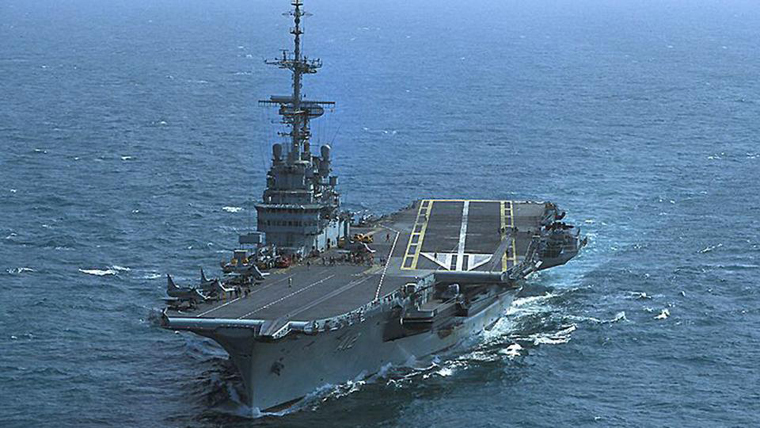
BRASILIA, Feb 4 (NNN-AGENCIES) — Brazil on Friday sank a decommissioned aircraft carrier, the Navy announced, despite environmental groups claiming the formerly French ship was packed with toxic materials.
The “planned and controlled sinking occurred late in the afternoon” on Friday, some 350 kilometers off the Brazilian coast in the Atlantic Ocean, in an area with an “approximate depth of 5,000 meters” the Navy said in a statement.
The decision to scuttle the six-decade-old Sao Paulo, which had been announced Thursday, came after Brazilian authorities had tried in vain to find a port willing to welcome it.
Though defense officials said they would sink the vessel in the “safest area,” environmentalists attacked the decision, saying the aircraft carrier contains tons of asbestos, heavy metals and other toxic materials that could leach into the water and pollute the marine food chain.
The Basel Action Network (BAN) had called on Brazilian President Luiz Inacio Lula da Silva — who took office last month vowing to reverse surging environmental destruction under far-right ex-president Jair Bolsonaro — to immediately halt the “dangerous” plan.
Built in the late 1950s in France, whose navy sailed it for 37 years as the Foch, the aircraft carrier earned a place in 20th-century naval history.
It took part in France’s first nuclear tests in the Pacific in the 1960s, and deployments in Africa, the Middle East and the former Yugoslavia from the 1970s to 1990s.
Brazil bought the 266-meter aircraft carrier for $12 million in 2000.
A fire broke out on board in 2005, accelerating the aging ship’s decline.
Last year, Brazil authorized Turkish firm Sok Denizcilik to dismantle the Sao Paulo for scrap metal.
But in August, just as a tugboat was about to tow it into the Mediterranean Sea, Turkish environmental authorities blocked the plan.
Brazil then brought the aircraft carrier back, but did not allow it into port, citing the “high risk” to the environment. — NNN-AGENCIES





